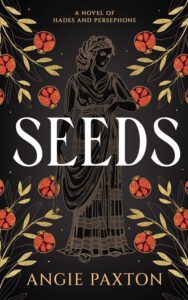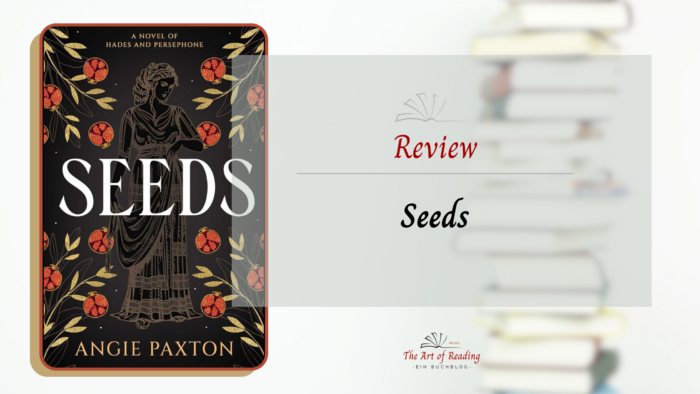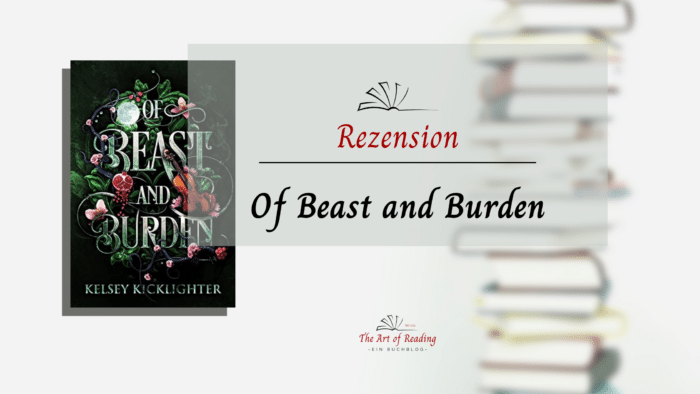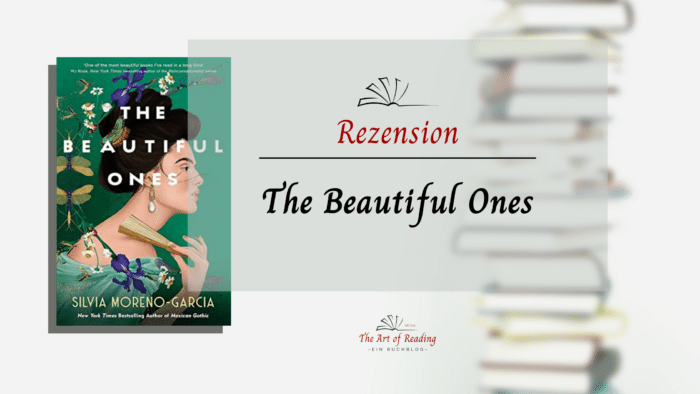5-Star Review of Seeds by Angie Paxton
Angie Paxton‘s Seeds is a stunning recreation of the myth of Persephone and Hades, which has enthralled audiences for generations. Paxton‘s lyrical prose transports you to a universe where gods are more than just great beings; they are flawed, very human characters dealing with the scars of betrayal, rejection, and longing. This novel stands out not only for its gorgeous setting in Mycenaean Greece, but also for its daring choice to portray the story primarily through the eyes of Persephone and her mother, Demeter. While I wished for deeper insight into Hades‘ perspective, the richness and complexity of the two female characters more than made up for it.
 Seeds by Angie Paxton
Seeds by Angie PaxtonASIN: B0CW1KMMM3
Published on 07. Jan 2025 by Rising Action
Format: ARC, eBook
Pages: 393
Genre: Adult, Gods, Greek, Historical Fantasy, Magic, Mythology, Retelling, Romance
Language: English
Source: NetGalley
Link to Goodreads
My rating: Spice:

Kore has lived her entire life under her resentful mother Demeter’s shadow, trying her hardest to please a woman grown bitter by betrayal. With her self-esteem in tatters and deliberately isolated by her mother, it’s no surprise that Kore is flummoxed when she meets a collection of otherworldly women – the Goddesses of Olympus – who tell her that her mother is in truth a Goddess herself. Kore tells them her preferred name, Persephone, and hopes they will not only have answers for her new questions, but the friendship and love she craves. Instead, an imposing and stoic figure emerges from a nearby cave on a magical chariot and snatches Persephone away.
Upon realizing she has been taken to the Underworld by Hades, who desires she become his queen, Persephone vows to escape.
Demeter, enraged upon finding her daughter taken, goes to extreme lengths to reclaim her – putting the lives of all humanity, and even the gods, at risk.
Angie Paxton breathes new life into a myth that has been reshaped, adapted, and loved since Homer's Hymn to Demeter. Seeds is a deeply romantic story of two lonely souls finding one another, the pressure put on children to forgive their parents’ abuse, and the power of resentment.
Content References to child abuse, animal death, starvation, forcible confinement
Buy here: Amazon
Find the Author: Website, Blog, Facebook, Goodreads, Amazon, Instagram

Seeds ♦ Angie Paxton
A Review
Opinion
Complex and Flawed Characters
One of Seeds‘ best features are its characters, notably the three key figures—Persephone, Demeter, and Hades. Paxton‘s decision to focus on Persephone and Demeter allows readers to delve into the novel’s strained and intensely emotional mother-daughter relationship.
Demeter, as depicted here, is a revelation. She is a cynical, spiteful, and wounded goddess who has been wronged, particularly by her sister Hera and her husband Zeus. Paxton doesn’t shy away from depicting Demeter as both a victim and an antagonist. While her pain and cynicism are reasonable given her history, her treatment of Persephone (who she also refers to as Kore) cannot be excused. Persephone‘s mental and physical maltreatment at the hands of her mother—raised in ignorance of her divine origins and made to feel useless and unwanted—paints a sorrowful image of a daughter yearning for love but being denied it due to bitterness and fear.
Hekate, a secondary yet crucial figure, lends depth to Demeter‘s character. It is argued that Hekate‘s influence increased Demeter‘s domineering and harmful conduct toward Persephone, making their relationship even more complex. However, there is an irrefutable darkness within Demeter that causes her to withdraw affection from her own child. Her inner depth is what makes her such an intriguing character.
Seeds – My favorite Quotes
“In his existence Hades has known little of light. Yet he is not twisted, or dark, or bitter, or unkind.”
“[..] My love for Hades came at great cost to both he and I. I don’t regret it, but had I not been left so lonely in my existence in the Upper World perhaps Hades would have found me an impossible conquest.[…]”
“[…] I’ll do what I must to ensure Persephone’s return even if it slays a thousand-thousand mortals, even if it lays waste to all the land of the Achaean people, even if it topples Zeus from Olympus.”
“[…] Will you never learn to make what you have enough? End the famine. Wait upon Orpheus’s success. Should he fail, leave her below and be satisfied in the knowledge of her love.”
“[…] She won’t, she can’t love you when she sees the wrong you’ve committed here. Her heart will turn from you forever. The two of you will be separated for eternity.”
His light. Her eyes filled with quick tears. They aren’t tears of sadness but he had no way of know that, no way of knowing the deep wound his words had salved.
Hadn’t that always been the way of things, reaching out for her mother’s love, only to be singed time and again? Perhaps it was time to stop grasping after something that only ever caused her pain.
A moment later, he released a series of body-shaking sobs.
The sound was pure anguish, sheer loss, the pain of years breaking through a dam that had held it in place for far too long. It was the heart’s cry of a young boy left by his mother to languish in darkness, of a youth forced to fight before he learned to love, of a young man plunged into darkness again before he had a chance to accustom himself to a life in the light, of a God who had no choice but to deal death to one he loved. There was no anger here. Only agony.
“I have no power save the little accorded me by virtue of my Immortal birth. Nearly everything I do must be achieved by the seat of my brow. Unlike those on Olympus, my life has been one of toil, agony, and unease, and this day you have taken from me one of the few graces I possessed.”
“[…] The only grace I can give my subjects is that of forgetting, so they aren’t tortured by remembrance of a life they can no longer have. That’s my mercy, the comfort of oblivion. Is it any wonder I’m the most hated, most feared, least venerated God?””
To have such a gift and to be barred by the laws of the Underworld from using it would constitute an exquisite form of torture, especially for one with the depth of feeling she was beginning to suspect Hades harbored.
His heart was in her keeping and she didn’t know how to hold it, didn’t want to learn.
“Do you wonder that I long for one … that I long for you to live with me in this realm because you find pleasure in my company and joy in the sight of me, not because I bound you to me against your will?”
She knew too much of him now to simply say he was a monster who had taken her captive and dragged her to his monstrous realm and yet, how could she define him as anything else?
“Very few, for in death as in life, most mortals see only what they wish. The glamour of this place works on the willingness to be deceived. In some eyes I’m the Mother Goddess. To others, I’m a being known as Osiris. Some call me Ba’al. And there are other names, too many to tell. No doubt they’ll find their own titles for you as well. And once they partake of the River Lethe, they perceive nothing anymore and so it matters not if they see me or my realm true.”
“I thank you for the apology.” He gave a small laugh. “I believe it’s the first I’ve ever received.”
He hadn’t lost his temper a single time over the past month as he’d instructed her in how to become a better rider. He even tried to comfort her with his own strange methods when he thought her distressed. This God, this man, had in many ways, been kinder and more patient than her own mother. And yet, he’d still taken her captive, still made her submit to his hands and body her first night in his realm.
He put three stones, one blue for the sea, one white for the heavens, one black for the Underworld, in a pouch. As the eldest of my brothers, I put my hand in first and drew out the black stone. Three stones for choosing, and I drew the dark one. There was no denying, it was my fate.
If only the water could enter her head and heart and sweep away these new thoughts and feelings regarding Hades, but no matter how long she stayed beneath the surface, cleansing her interior landscape wasn’t possible.
She and Hades were akin, seeking for heart’s ease in any wretched little way they could, living on the barren edge of the world of which they were supposed to be a part, pitiful in their desperation to be loved by one who wanted only to flee their grasp and return to a better life.
Rhea raised her eyebrows. “Surely, Demeter, as Goddess of the Harvest, you must know, as non other can, you only reap that which you sow. Had you no bitterness to stoke, Hekate would have been unable to turn your heart from Persephone. Your cruel treatment of your daughter is no one’s fault but your own.”
“You have no desire to aid the mortals, though you lived among them as one and know well the trial of their existence?”
“No.”
“You must be an icy thing indeed, if that experience couldn’t stir you to pity,” Rhea said. (to Demeter)
“Elysium is paradise. the great heroes come here when they die.” Hades jerked his chin toward the buildings on the far horizon. “Those are their homes.”
“I’m Hades.”
Persephone jerked as the deep voice splintered the silence. It was the first time her captor spoke since taking her.
[…] why Demeter didn’t call her Persephone when the villagers could hear. There was so much history, too many secrets and too much old pain wrapped up in why Demeter named her daughter as she had and why she kept that name a secret between the two of them.
No matter the cost, Persephone must be kept from the knowledge of her Immortal heritage and abilities. Any use of them could draw the notice of those on Olympus. Then they would come here, fetch Persephone, and leave Demeter forsaken and utterly alone among the mortals.
A lone narcissus bloom there. It shone out startlingly white against the black of the cave at its back.
Persephone still had no explanation as to why her mother wanted her to keep away from the meadow and now, she would likely never get one.
“Why won’t you call me Persephone when the villagers can hear? They don’t know it’s meaning and even if they did none here would dispute that ‘destroyer of light’ suits me.”
Her mother’s use of her other name was like the sting of a lash on her skin. Kore meaning ‘girl’ or ‘daughter’, in a way a dog is only Dog, as a creature is only Thing.
Always the same argument. Persephone was too young, too foolish, too incapable to do any but the most menial of tasks. This time, however, her mother was wrong.
Persephone, however, would never be taken to wife, not in this village where the men feared her curse would shrivel their man-parts.
Persephone‘s transformation from a shattered and solitary girl to a woman discovering her strength and identity is at the center of this tale. Her initial helplessness and deep-seated self-doubt, caused by years of trauma, are both familiar and devastating. However, her stay in the underworld with Hades represents the turning point in her narrative. Though initially terrifying, Hades is the first to perceive Persephone as capable of greatness, rather than weak or unneeded. Their encounters, especially when he encourages her to pursue her own interests, such as horseback riding and archery, are among the most riveting in the story.
The story of Persephone and Hades is a masterwork in slow-burn narrative. While the tale is written through Persephone‘s eyes, Paxton‘s language allows Hades‘ quiet vulnerability to seep through. His seclusion and pain, like Persephone‘s, foster a connection that feels both inevitable and beautifully poignant. Hades is portrayed as a very lonely god who, like Persephone, has been abandoned and dismissed by those who should have cared for him. This common sense of abandonment makes their eventual relationships all the more meaningful.
Themes of Identity and Forgiveness
At its core, Seeds is a story about identity, self-worth, and the complicated relationship between parents and children. Persephone‘s journey is about more than simply finding love; it’s about discovering herself outside of her mother’s shadow. Her eventual revelation that she does not require Demeter‘s approval to be entire is a watershed moment of empowerment.
The work also addresses the serious issue of forgiveness, particularly the cultural expectation that children forgive their parents’ transgressions. Paxton does not provide easy solutions here. While Persephone comes to comprehend the source of Demeter‘s anguish, she also knows that this does not excuse the harm done to her. This blend of empathy and accountability is one of the book’s most notable strengths.
A Few Missing Pieces
If there was one component of Seeds that made me want more, it was Hades‘ perspective. While his character is well-drawn through Persephone‘s eyes, more chapters from his point of view could have provided more depth to his feelings and motivations. As a complicated character like Demeter or Persephone, he merits equal narrative weight. Nonetheless, its absence does not reduce the overall effect of the story.
A Modern Myth Reimagined
Paxton‘s ability to rework a well-known story while still tackling contemporary issues of agency, pain, and healing is nothing short of astounding. Her work is both poetic and solid, brilliantly capturing the contrast between the bright, sunlit world of Demeter‘s domain and the shadowy, eerie beauty of the underworld.
Conclusion
Seeds is a must-read for lovers of mythological retellings, as it not only reinvents, but also adds emotional depth to the Persephone and Hades narrative. This book is a triumph, thanks to its vividly portrayed characters, slow-burn romance, and investigation of family tension. January 7th, 2025, cannot arrive soon enough for those who have yet to witness its magic.
I received an advance review copy for free, and I am leaving this review voluntarily.

This review was also published at:
| Goodreads | Amazon |
| StoryGraph | NetGalley |
| BookBub |





